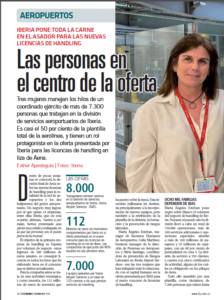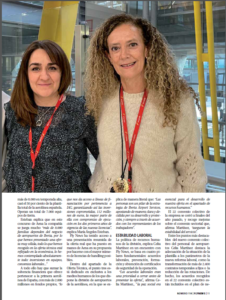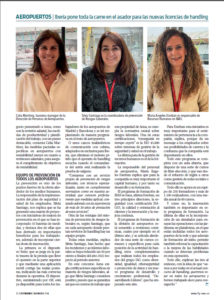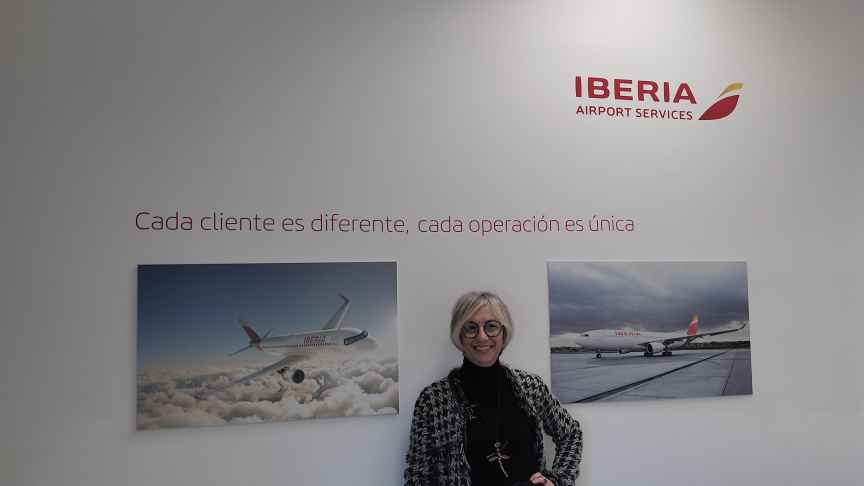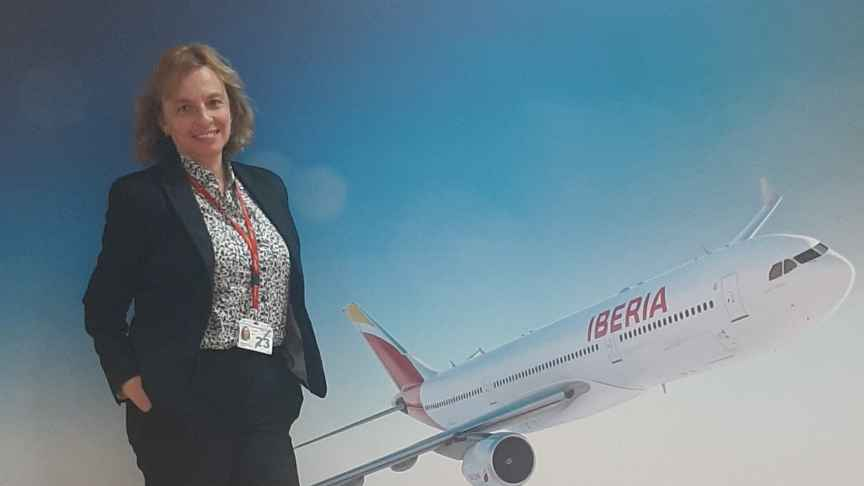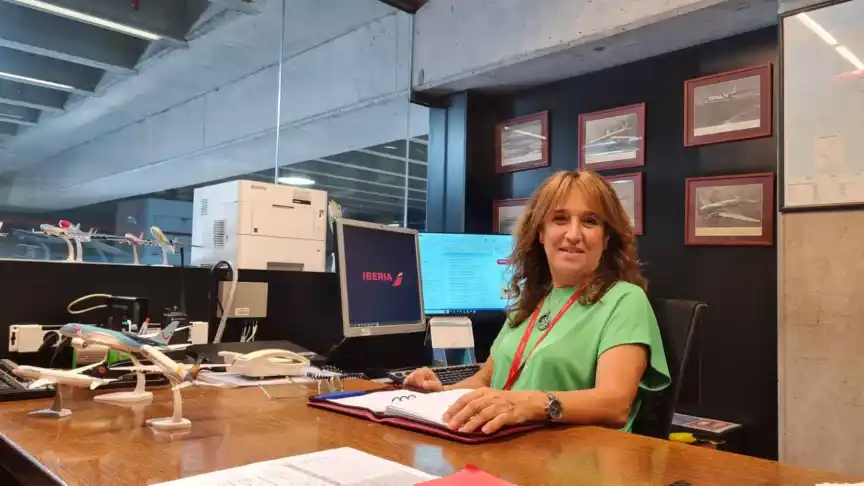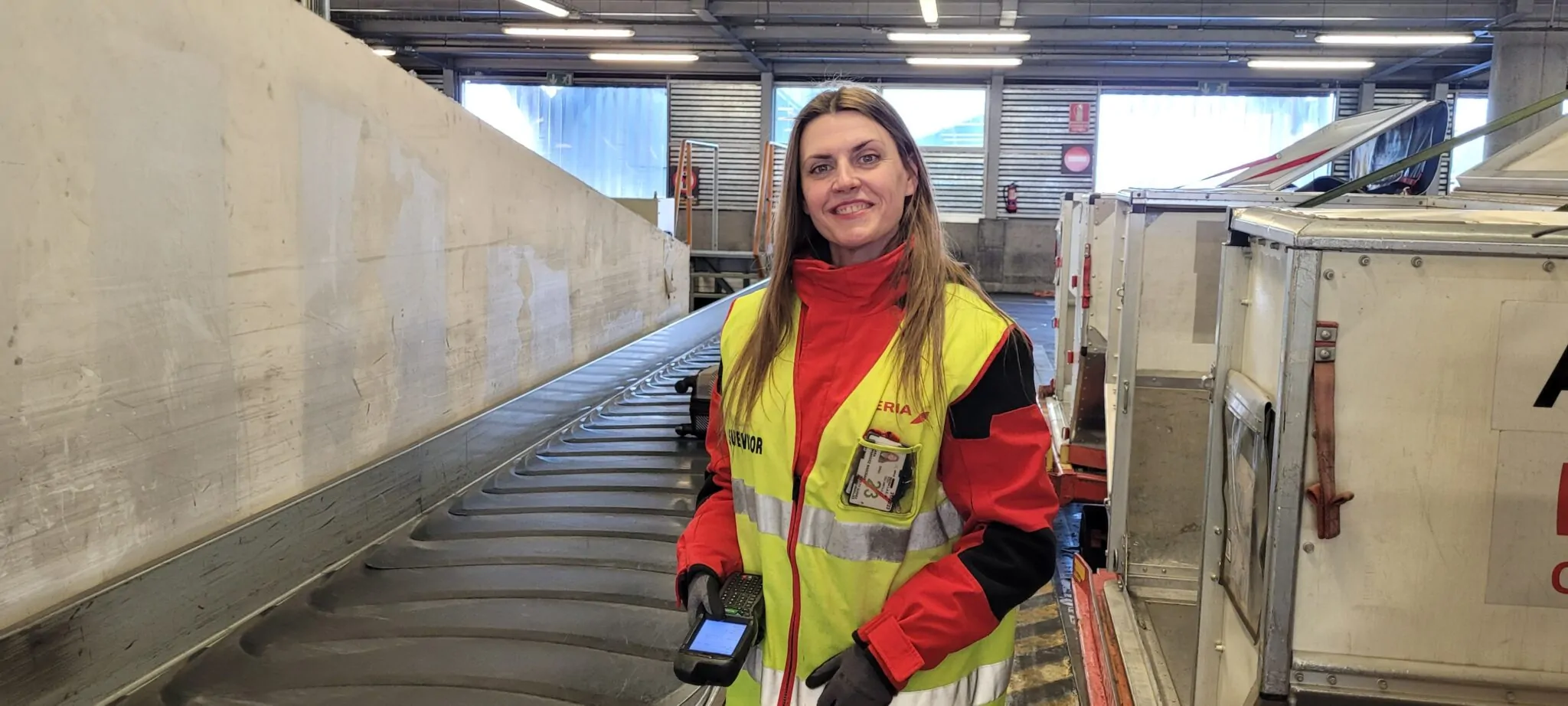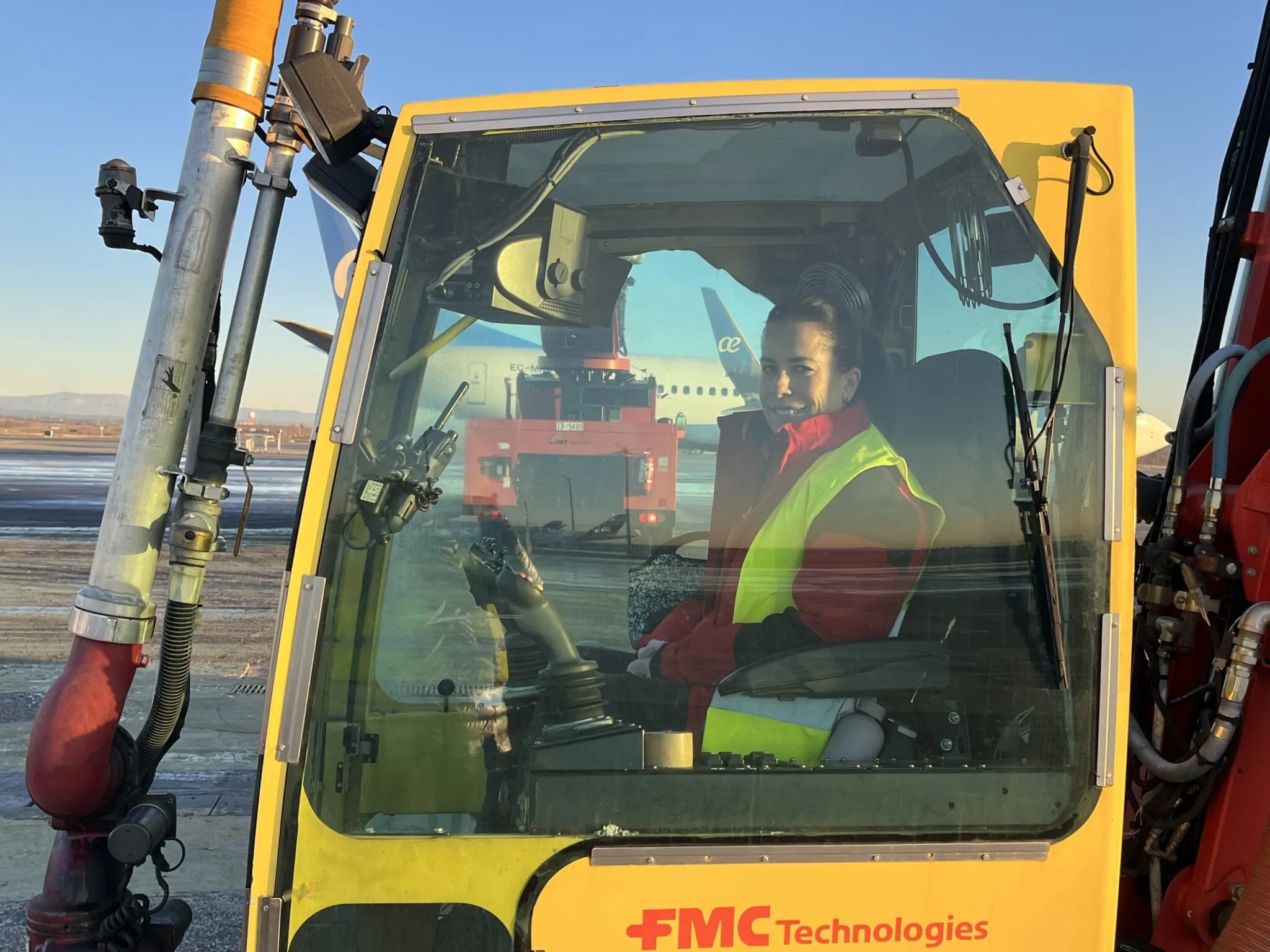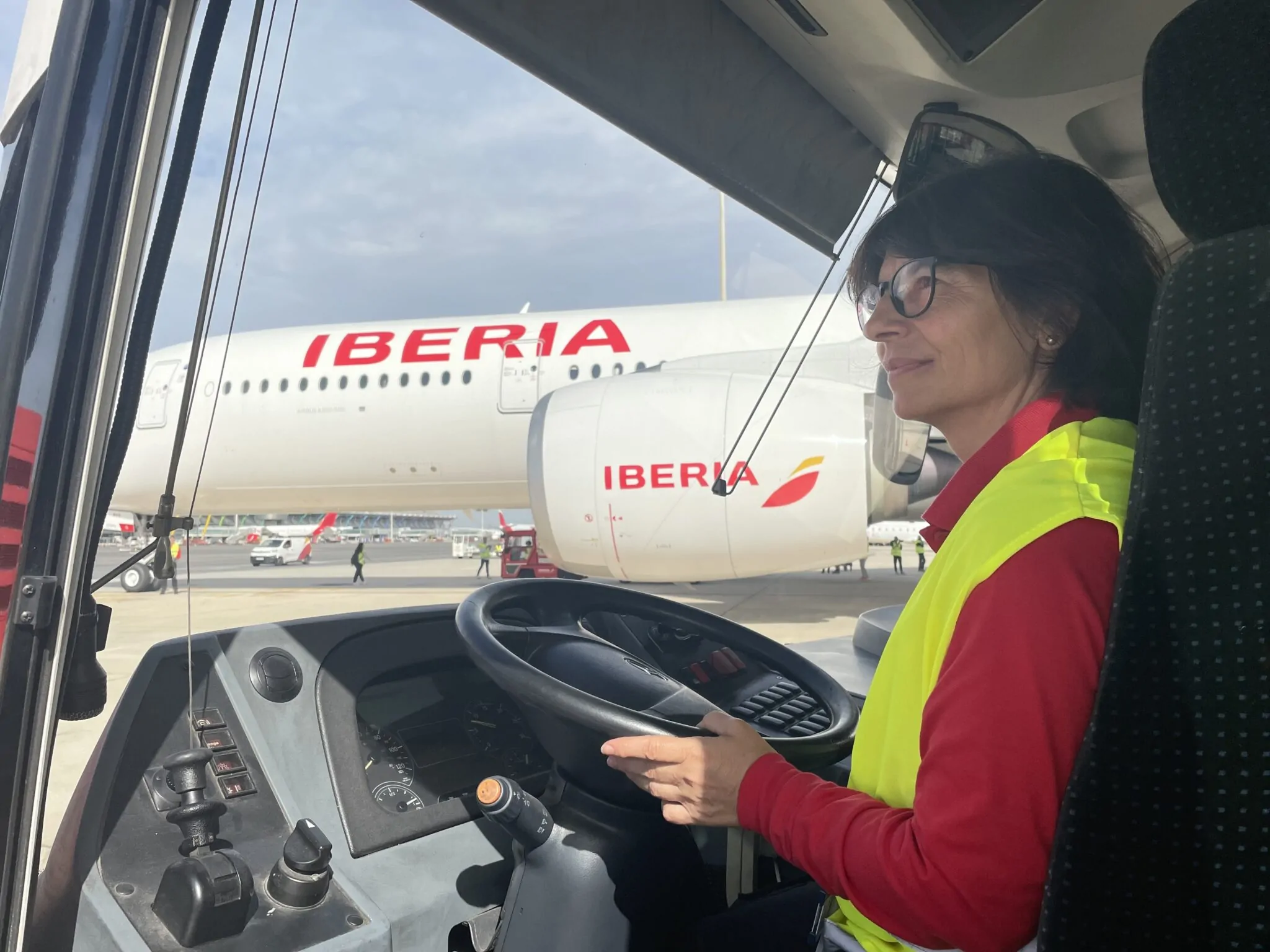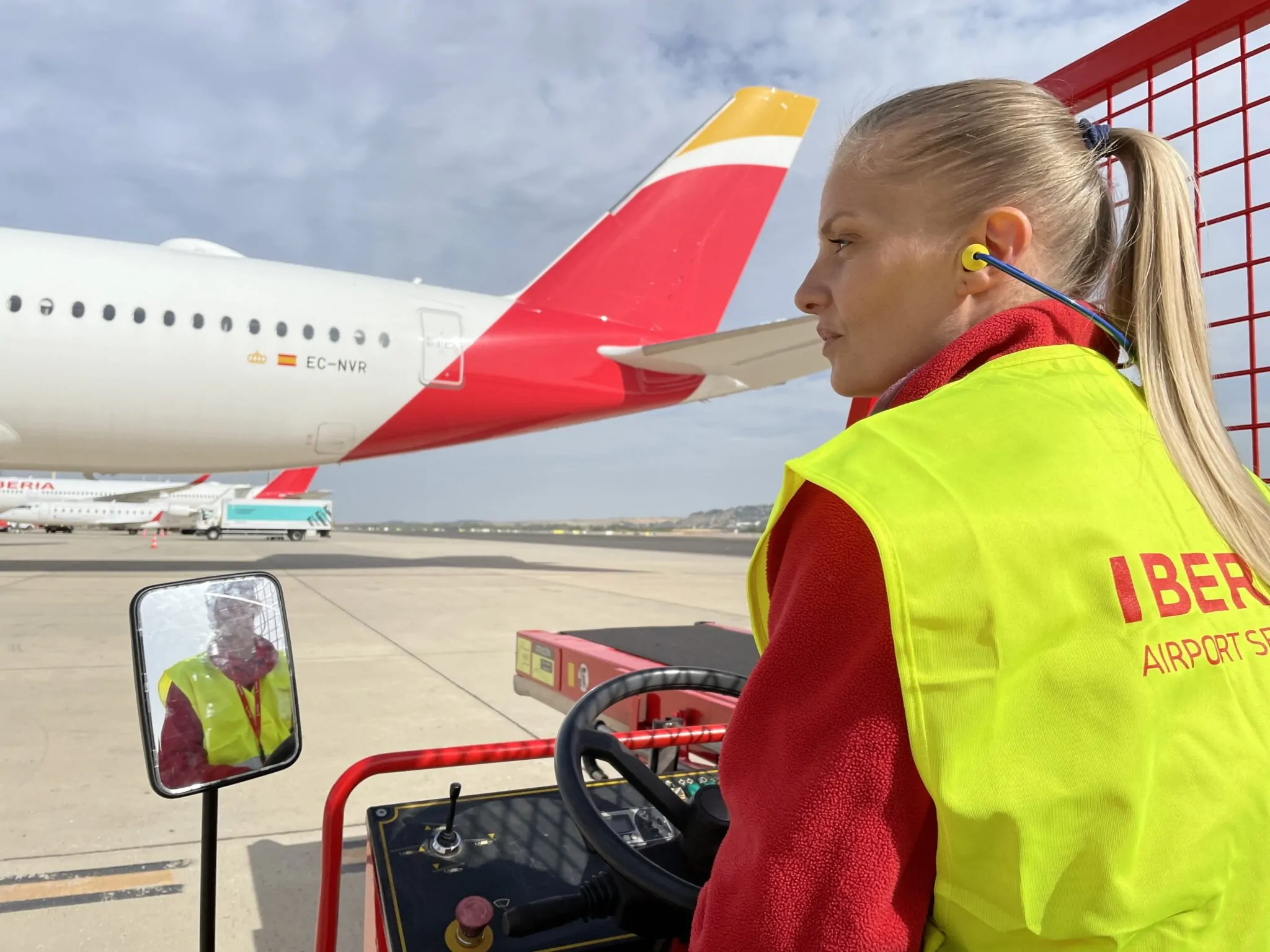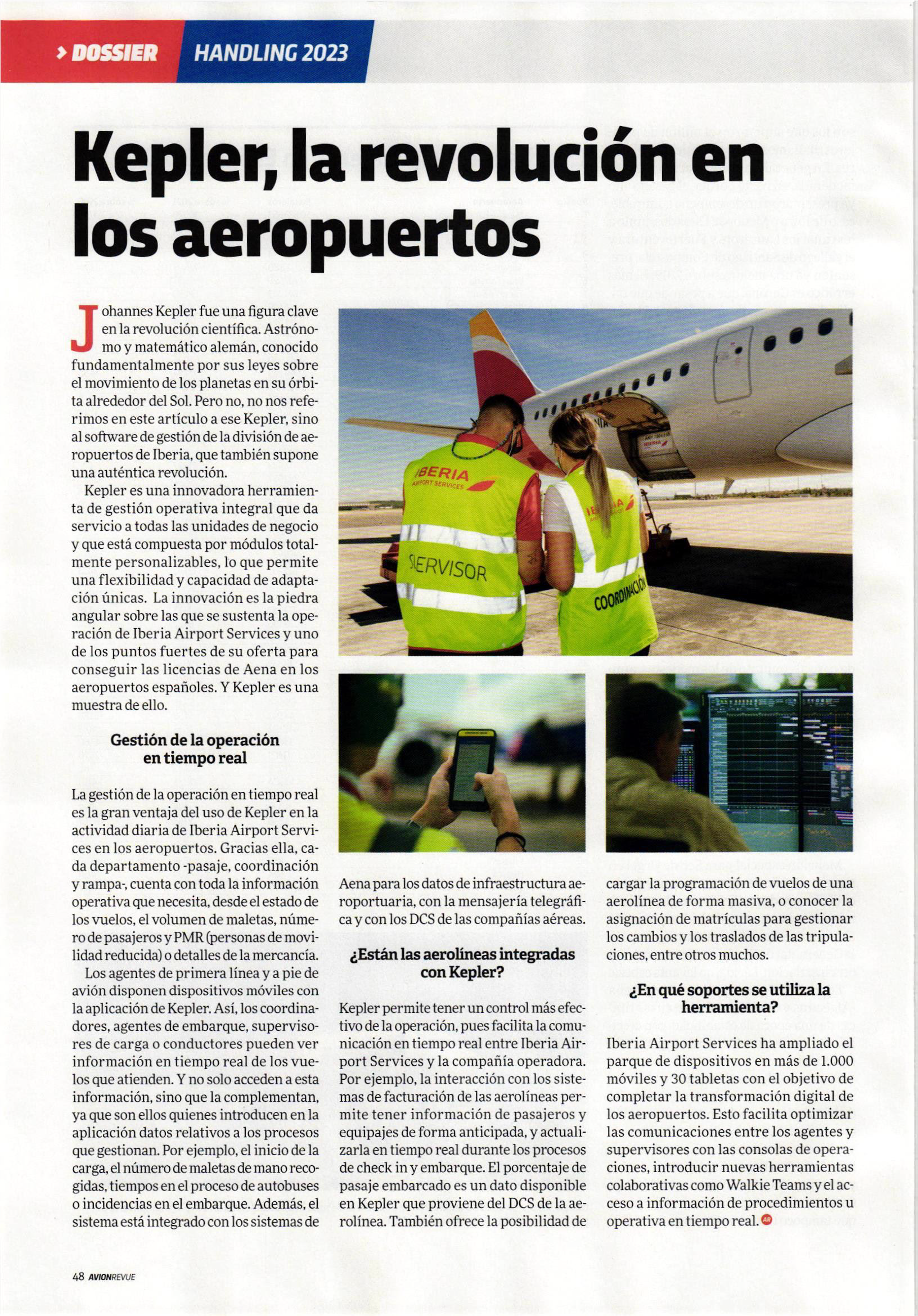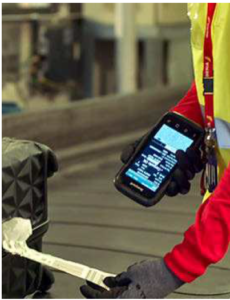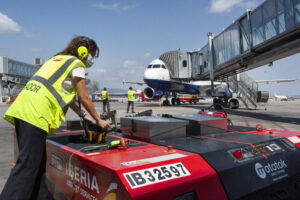-
Audelco has been the guarantor of compliance with international standards.
-
Iberia’s Airport division has achieved this certification in just three months.
-
The awarding of this certificate comes in the middle of the bidding process for handling tenders. People are one of the main pillars on which Iberia Airport Services has built its bid for the licences at 41 Spanish airports.
Iberia Airport Services, the Airports division of Iberia, has had its Health and Safety Management System certified in accordance with the ISO 45001:2018 standard, which guarantees compliance with these international standards.
The certification has been issued by AUDELCO, an entity specialised in auditing and certification of management systems, and a leader in Occupational Risk Prevention.
The fact of having a solid and consistent Health and Safety Management System in its work centres has allowed Iberia Airport Services to achieve this certification in a very short period of time, just three months.
AENA, in its tender for the handling tender, identified as a valuable element the availability of this certification as a guarantee that the handling activity complies with levels of health and safety for workers that are higher than those established in the Law on Occupational Risk Prevention. Celia Martínez Calderón, Director of People in the Airports area, added that “we considered that it was good not only to carry out our activities with optimum standards in terms of health and safety, but also to have them accredited by an independent body. And if it also complied with one of the additional requirements for Aena licences, double objective achieved”.
Iberia Airport Services has risk prevention professionals with extensive experience in the sector, and specifically in handling activities in the different national airports and delegations.
“Our historical presence in airports throughout Spain and this level of professionalism allows us to have risk assessments of all tasks, functions, equipment and facilities,” adds Martínez Calderón. “Operational and regulatory knowledge means that the adoption of preventive measures is appropriate and realistic to the needs observed. In addition to this, we have external collaborators who help us to find technological and innovative solutions,” he concludes.
Iberia Airport Services, leader in the Handling sector
Obtaining this Health and Safety Management certificate, endorsed by AUDELCO, has been directly linked to the ramp handling tenders called by Aena, in which Iberia Airport Services is competing with the aim of winning the licences at 41 airports.
The technical part of these tenders has been built on three verticals: innovation, sustainability and people, and in all three, Iberia Airport Services has submitted a very robust bid. In the people vertical, AENA has included requirements related, above all, to training and occupational health and safety.
About Iberia Airport Services: IBAS is Iberia’s airport division, which is dedicated to serving Iberia’s aircraft and passengers and those of more than 200 airline clients. It attends to passengers throughout their stay at the airport – check-in, boarding, arrivals, transits, incidents, special services… -, assists the aircraft on the ramp – sorting baggage, loading and unloading holds, reloading aircraft, providing tarmac service with its fleet of vehicles… – and dispatches flights. In 2022, it handled more than 88 million passengers, more than 300,000 aircraft and managed nearly 52 million pieces of luggage.
About AUDELCO: AUDELCO is an entity specialised in auditing and certification of management systems, being the first in the field of Occupational Risk Prevention, with definitive Administration Accreditation to carry out legal or regulatory audits of occupational risk prevention systems in accordance with R. D. 39/1997, with a national scope of action. Accredited by ENAC (Entidad Nacional de Acreditación) for the certification of occupational health and safety management systems in accordance with the ISO 45001 standard. It also audits at international level.
https://www.hangarx.com.ar/2023/03/iberia-airport-services-recibe-la-certificacion-iso-45001/


